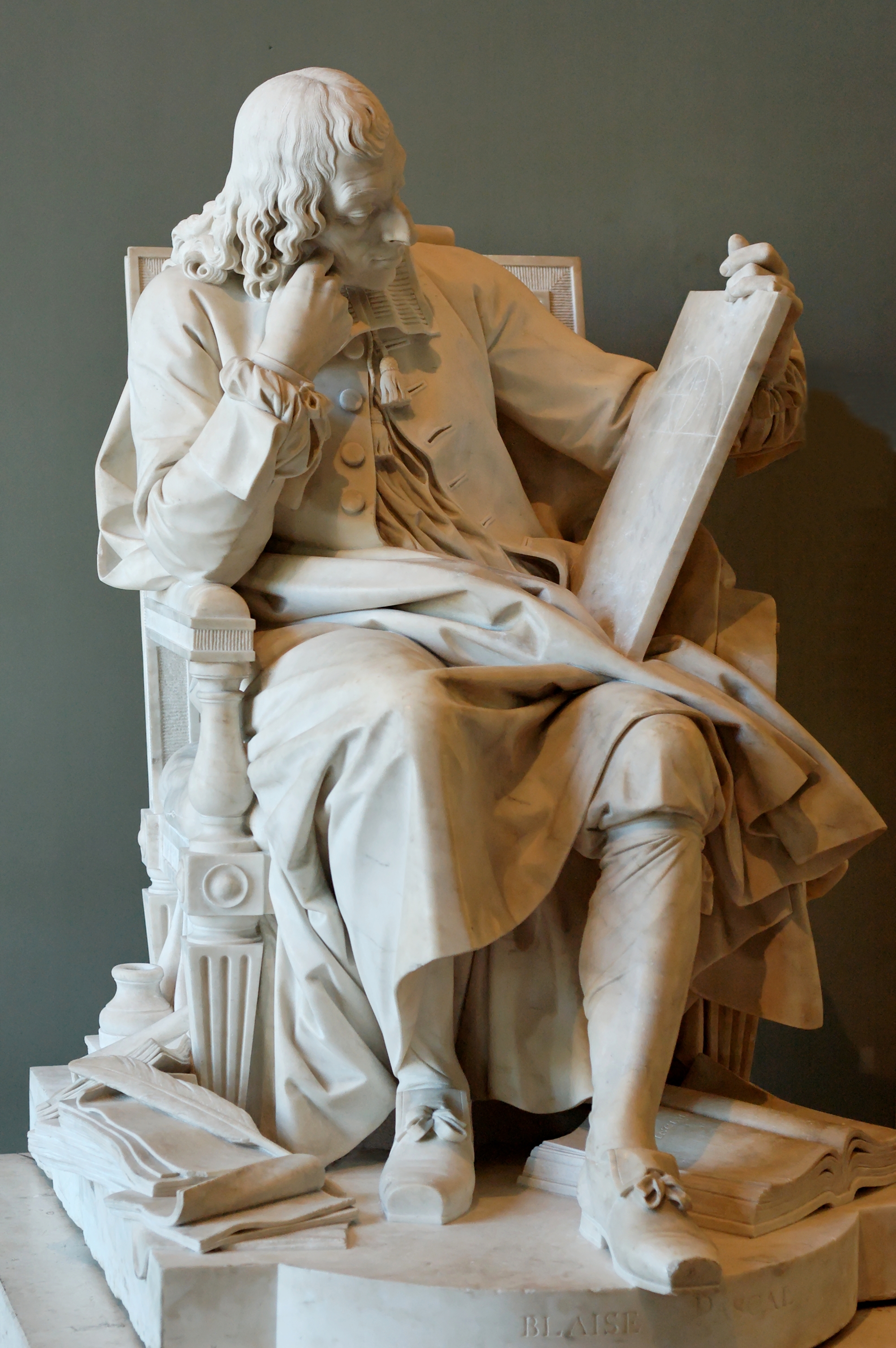
I find the various philosophical arguments for the existence of God intriguing speculations rather than cast-iron proofs. However, in Pascal’s Pensées there appears one compelling argument that ditches the speculation and goes for a straight, honest wager. It goes like this
- If you believe in God
- and God exists, you gain everything.
- and God does not exist, you loose nothing.
- If you do not believe in God
- and God does not exist, you gain nothing.
- and God does exist, you loose everything.
Thus, Pascal concludes that you’re better off betting on God than betting against God. It’s really tough to argue against this exercise of probability. Voltaire found it “indecent and childish” and pointed out that the bet still does not prove the existence of God, which, naturally, Pascal fully understood. Diderot was a better critic, pointing out that if we factor into the bet alternative religions and deities, the greater chance of betting on the ‘wrong god’ appears. However, the wager still makes any kind of religious belief more attractive than non-religious atheism — if you choose a religion, you stand a chance of winning, but if you don’t, you stand no chance.
Atheists struggle with Pascal’s wager, mainly because it’s so difficult to argue against bald probability. Although the bet has attracted much criticism, there has never been a solid argument brought against it. It is based on the fact there is neither a rational argument for the existence of God, nor one against it. Whereas atheists enjoy pointing out the former, they are not so happy to accept its mirror: that atheism is the equal and opposite speculation to theism.
To be fair, Pascal’s wager is a probability trick, and atheists use Occam’s razor (that the explanation with the fewer assumptions should be preferred) as a like trick to give their atheism preferrence. Just as Pascal’s wager does not prove theism, Occam’s razor does not prove atheism; both simply give us the costings with which to make a value judgement.
Personally, as a theist, I find Pascal’s wager to be a rather pessimistic take on belief; I can find many optimistic existential reasons for my own belief, but they have little place in such arguments. Although I find Richard Dawkins’s The God Delusion to make successive strawman arguments against theism, I do agree somewhat with its take on Pascal that living life to its fullest rather than betting all on ‘pie in the sky when you die’. However, I would contend against his ‘anti-Pascal wager’ that most theists are not so hamstrung by their religion so as not to live a life as full as their fellow atheists.
